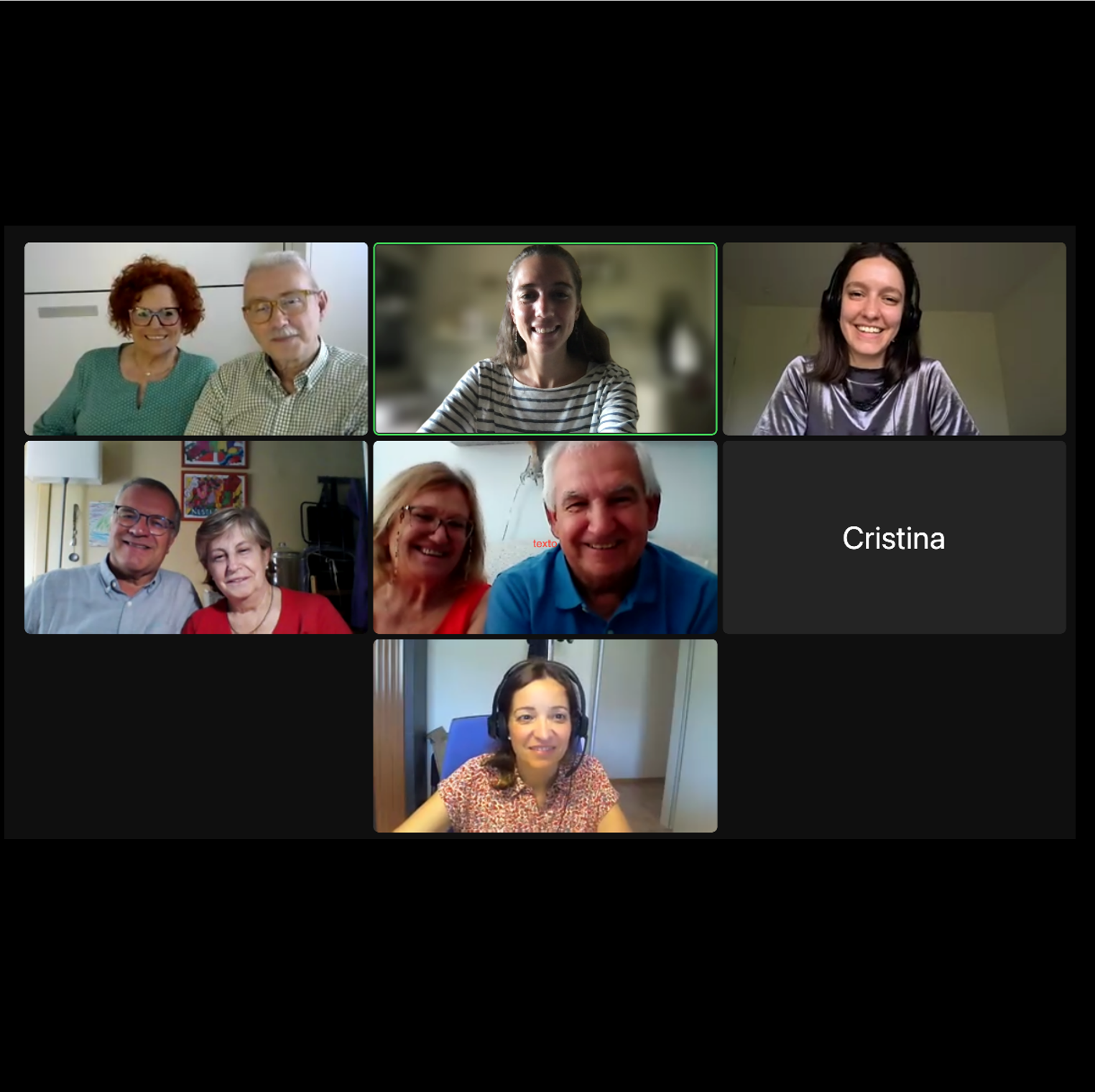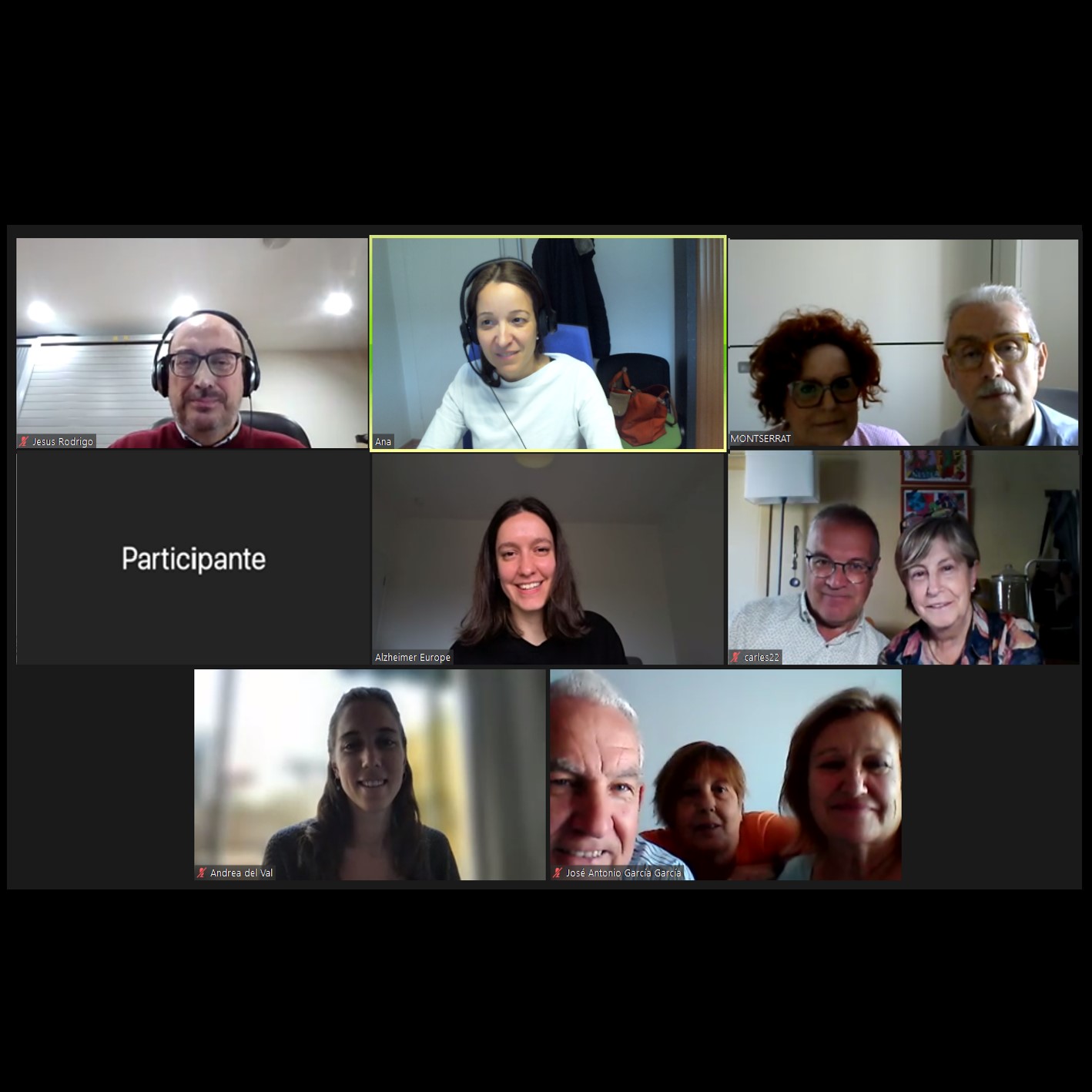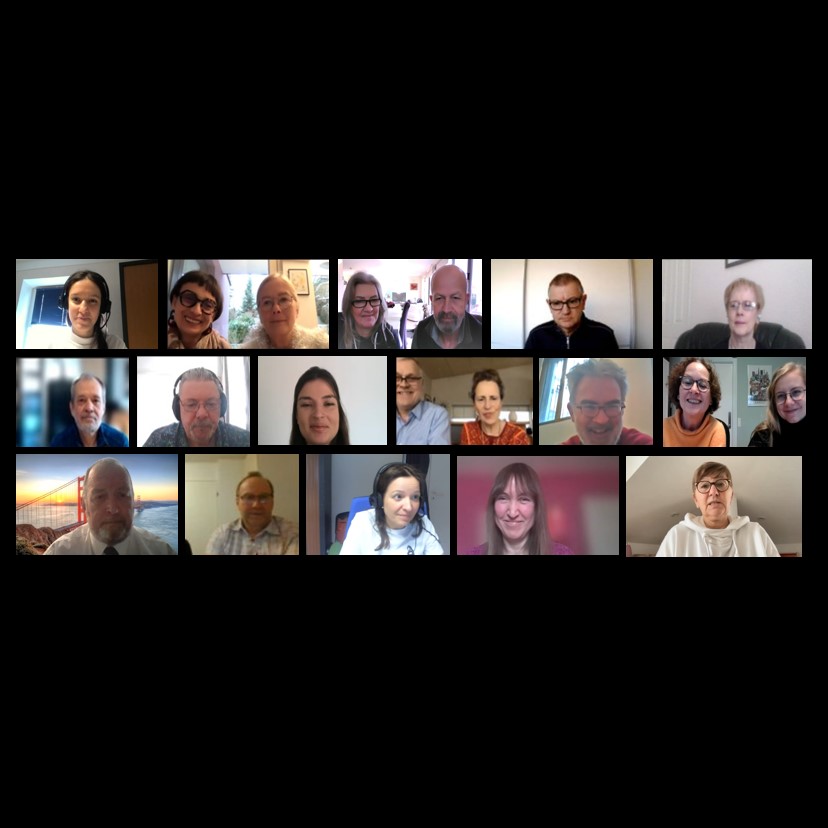On 20 June, Cristina, Kina, Pilar, García and Ricard (members of the ADIS-advisory board (ADIS-AB)), and their supporters, gathered online. The meeting was organised by Alzheimer Europe (AE), facilitated by AE Project Officers Soraya Moradi-Bachiller and Ana Diaz and was attended by neuropsychologist Andrea del Val Guardiola and neurologist Neus Falgàs (Fundació Clínic per a la Recerca Biomèdica, Spain), as well as Jesús Rodrigo (Confederación Española de Alzheimer, Spain). Contrary to previous meetings, this one aimed at providing the members of the ADIS-AB with a summary of all their contributions to the Public Involvement activities during the first half of the year and the impact that their feedback had on the ADIS project.
Soraya started the meeting by giving an overview of the discussions and feedback obtained in previous consultations relating to the topic of the informed consent process, and the terminology used in the ADIS informed consent form. After this overview, Neus, who is part of the ADIS research team, explained the changes that were made to the ADIS informed consent form, based on the feedback received from the ADIS-AB. These changes include the replacement of the term “patient” with “participant” when referring to everyone who participates in the ADIS study, regardless of whether that person has Alzheimer’s disease (AD) or not, and the addition of a paragraph acknowledging the value of participation to research participants.
Soraya then summarised the feedback provided by the ADIS-AB on the topic of the value of knowing an AD diagnosis in the early stage of the disease (i.e. Mild Cognitive Impairment (MCI)). According to the ADIS-AB, an early diagnosis of AD has a huge value, as this is essential to plan and make important decisions regarding someone’s future needs, to access clinical trials and appropriate medication, and to take part in activities to maintain psychological wellbeing. However, an early diagnosis of AD, still to this day, represents a challenge in employment and healthcare systems that cannot be ignored.
Lastly, Soraya gave some details about the first face-to-face consultation with the members of the ADIS-AB, which will take place in November in Luxembourg, where they will have the chance to meet each other in person.





